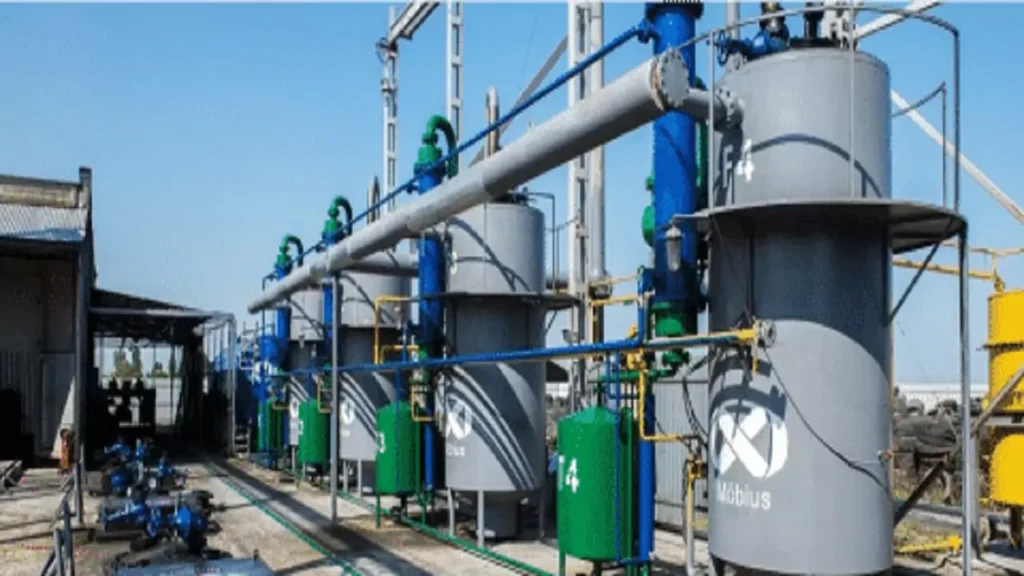Setting up a recycling plant is a promising opportunity for both those who want to invest in a sustainable business and those who seek to contribute to the preservation of the environment.

A recycling plant is a business that transforms discarded materials into new products, helping to reduce the amount of waste that ends up in landfills. In this guide, we will briefly outline the main steps and considerations for those who want to start a recycling business. Check out the full manual at the end of the post.
Understanding the Importance of a Recycling Plant
The concept of a recycling plant goes beyond simply processing waste. This type of recycling company plays a crucial role in preserving the environment by transforming materials that would otherwise be discarded into new, useful products. This not only reduces the amount of waste that accumulates, but also saves natural resources and energy. By choosing to set up a recycling plant, you are directly contributing to sustainability and helping to create a greener future.
Initial Steps
Before you begin, it is essential to understand that there is no “ready-made recipe” for setting up a recycling plant. Each business has its own particularities, and it is essential to be prepared to face challenges and constantly seek new knowledge. However, some basic steps can serve as a starting point:
- Market research: Before starting a recycling plant, it is crucial to conduct market research to understand the demand for recycled materials in your area. This includes identifying the most common types of waste and potential buyers of the recycled products.
- Location Selection: The location of the recycling plant is a determining factor for the success of the project. The location must be strategically chosen to facilitate the transportation of waste and recycled products, in addition to being in compliance with environmental regulations.
- Environmental Licensing: To operate a recycling plant, it is necessary to obtain the environmental licenses required by the competent authorities. This process involves presenting a detailed project that demonstrates how the recycling company intends to minimize environmental impacts.
Necessary equipments
Choosing the right equipment is essential to the efficient operation of a recycling plant. Depending on the types of materials to be processed, different machines will be required. Some of the most common equipment includes:
- Crushers: Used to reduce the size of solid waste.
- Conveyor Belts: They facilitate the transportation of materials within the plant.
- Presses: Compact recycled materials such as paper, plastic and metal.
- Separators: Separate waste by type, such as metals, plastics and glass.
Investing in cutting-edge technology will increase efficiency and, consequently, your profitability. In addition, process automation can reduce the need for labor and minimize human error.
Challenges in Setting Up a Recycling Plant
Despite the many advantages, setting up a recycling plant also presents challenges. One of the main ones is the need to ensure a constant flow of waste for processing. To achieve this, it is important to establish partnerships with waste suppliers, such as waste collection companies, industries and even waste picker cooperatives. In addition, the instability of recycled material prices can affect the profitability of the recycling company, requiring careful financial management.
Another challenge is raising awareness in the local community. Without active participation from the population in the recycling process, it can be difficult to ensure the necessary amount of waste to keep the plant operating. Educational and awareness-raising campaigns can help increase recycling adoption.
Environmental and Economic Benefits
The benefits of setting up a recycling plant go beyond the economic aspects. By recycling materials, you will be contributing to the preservation of the environment, reducing pollution and the consumption of natural resources. In addition, a recycling plant can create jobs and promote local economic development.
Recycling companies play a key role in the circular economy, where waste is reintegrated into the production chain rather than being discarded. This not only extends the lifespan of materials, but also reduces the need to extract natural resources such as timber, oil and minerals.
Follow the complete guide clicking here.




GOODNIGHT .
HOW DO I TAKE A COOKING OIL RECYCLING COURSE?
HOW DO I BUY EQUIPMENT TO SET UP A COOKING OIL RECYCLING COMPANY?